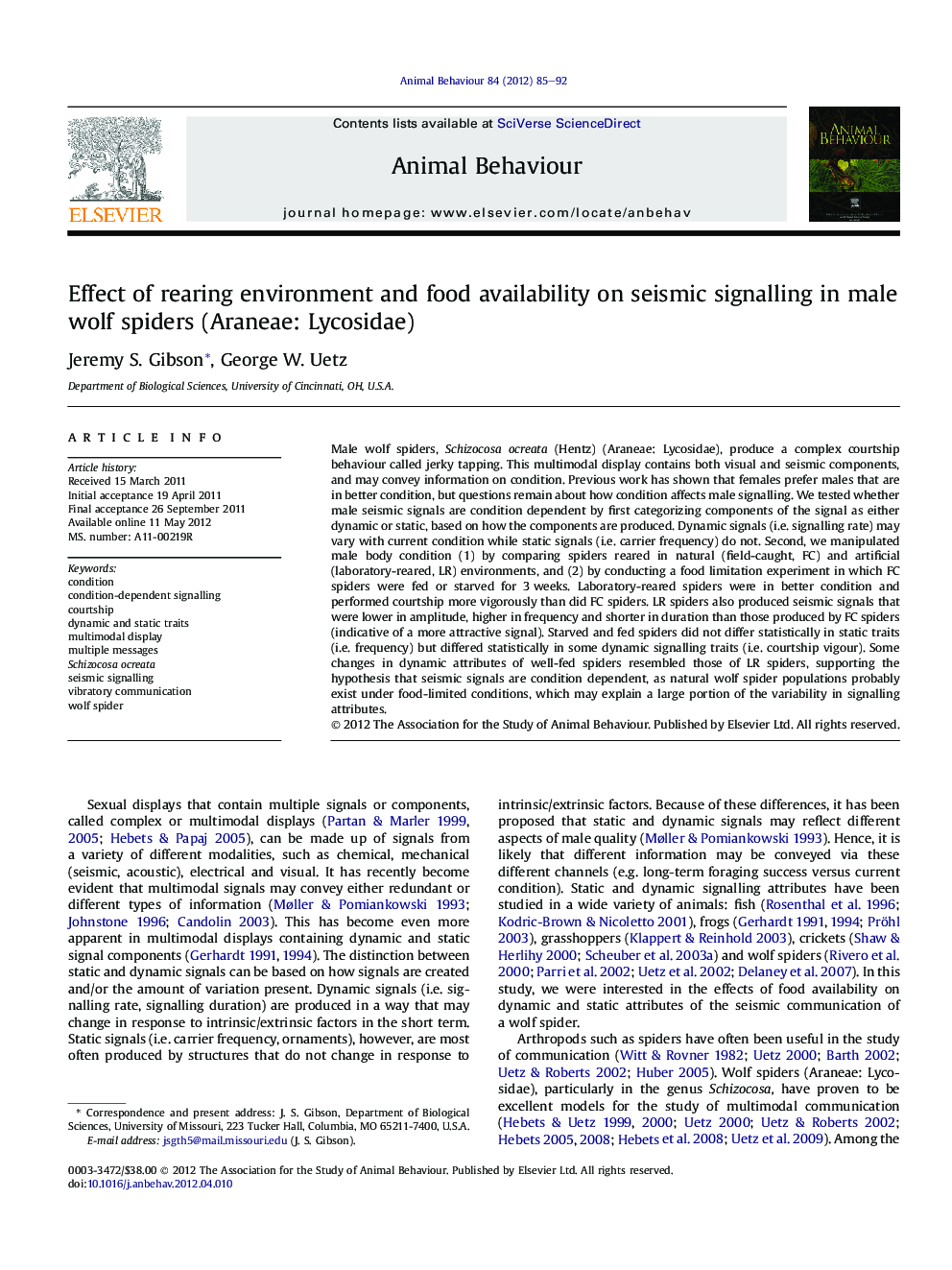| Article ID | Journal | Published Year | Pages | File Type |
|---|---|---|---|---|
| 2416678 | Animal Behaviour | 2012 | 8 Pages |
Male wolf spiders, Schizocosa ocreata (Hentz) (Araneae: Lycosidae), produce a complex courtship behaviour called jerky tapping. This multimodal display contains both visual and seismic components, and may convey information on condition. Previous work has shown that females prefer males that are in better condition, but questions remain about how condition affects male signalling. We tested whether male seismic signals are condition dependent by first categorizing components of the signal as either dynamic or static, based on how the components are produced. Dynamic signals (i.e. signalling rate) may vary with current condition while static signals (i.e. carrier frequency) do not. Second, we manipulated male body condition (1) by comparing spiders reared in natural (field-caught, FC) and artificial (laboratory-reared, LR) environments, and (2) by conducting a food limitation experiment in which FC spiders were fed or starved for 3 weeks. Laboratory-reared spiders were in better condition and performed courtship more vigorously than did FC spiders. LR spiders also produced seismic signals that were lower in amplitude, higher in frequency and shorter in duration than those produced by FC spiders (indicative of a more attractive signal). Starved and fed spiders did not differ statistically in static traits (i.e. frequency) but differed statistically in some dynamic signalling traits (i.e. courtship vigour). Some changes in dynamic attributes of well-fed spiders resembled those of LR spiders, supporting the hypothesis that seismic signals are condition dependent, as natural wolf spider populations probably exist under food-limited conditions, which may explain a large portion of the variability in signalling attributes.
► We investigated effects of body condition on static and dynamic attributes of seismic courtship in male wolf spiders. ► We performed two comparisons: laboratory-reared (LR) to field-caught (FC) and FC-starved to FC-fed males. ► LR males were in better condition and produced more ‘attractive’ courtship than FC males. ► Starved and fed FC males differed significantly in several dynamic traits but not in static traits. ► Male seismic signals are condition dependent and may convey body condition across an individual's lifetime.
